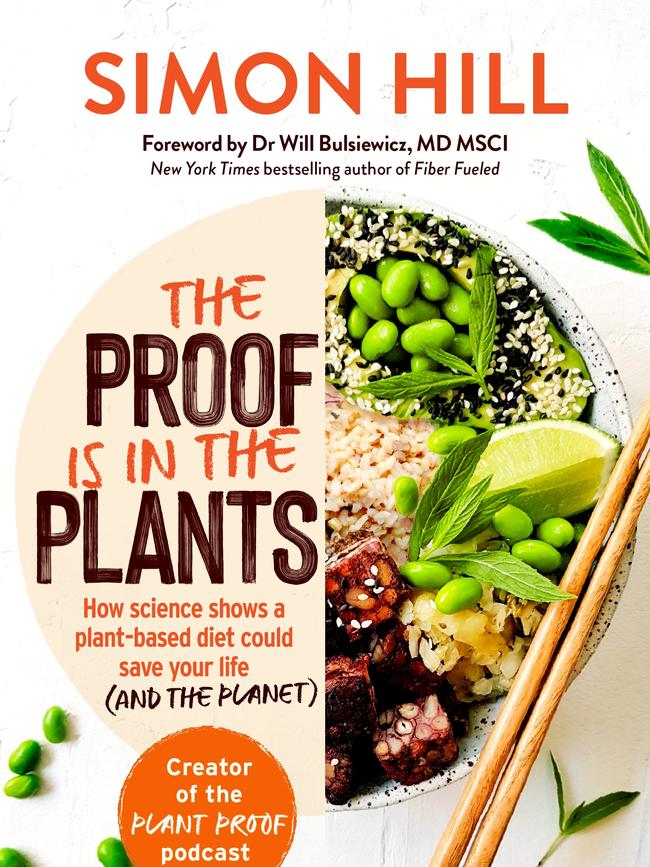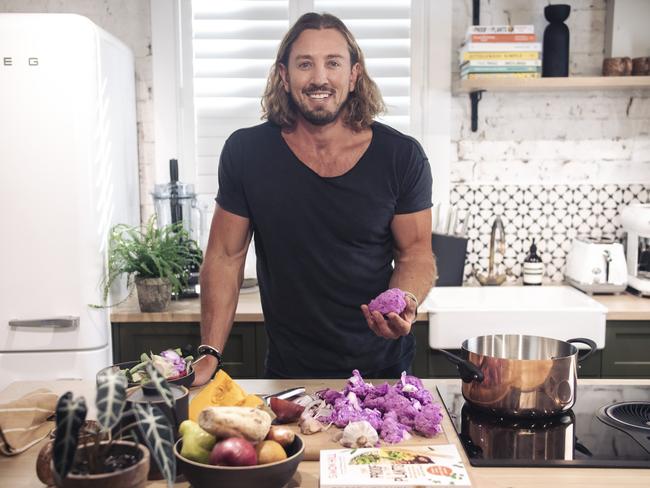Simon Hill: Moderation message masks our poor nutritional preferences
Generations of Australia grew up believing “all things in moderation” was a good way to eat. But podcaster and author Simon Hill says it’s a myth.

SmartDaily
Don't miss out on the headlines from SmartDaily. Followed categories will be added to My News.
Generations of Australians grew up believing ‘all things in moderation’.
But nutritionist and podcaster Simon Hill, author of new book The Proof is in the Plants, says Australia’s chronic disease statistics show there is nothing moderate about our consumption of ultra-processed foods and animal products – and that sensible sentiment has become a smokescreen for a nation making increasingly poor dietary choices.
His book unpacks the science of plant-based health benefits – which are not new; fruit and veg were always food pyramid heroes. But Hill goes further by advocating a plant-exclusive diet, although his practical realism welcomes concessions along the way. Here he breaks down the basics with SMARTdaily.

WHAT IS YOUR ‘WHY’?
Hill’s own ‘Why?’ for making dietary changes was walking in on his 41-year-old father having a massive heart attack when he was just a 15-year-old boy.
“That was an experience for me, to see what loss of health looked like and how helpless we can be,” he says. “Everyone’s ‘Why?’ will be different. Why is it important for you to make these changes in your life? It might be related to your children. It might be because you’re already experiencing poor health.
“The reason that cardiovascular disease, which is the leading cause of death in Australia, runs in families is … because families adopt the same lifestyle.”

FATIGUE IS NOT YOUR FATE
Many of us normalise feeling tired and lethargic, but Hill says exhaustion is not inevitable once you reach a certain age or stage of life.
“You shouldn’t be waking up feeling like you’ve been hit by a bus, (but) a lot of people have come to accept that (feeling) as a normal part of ageing,” Hill says.
“Nothing will beat setting up an overall better lifestyle. Those basic pillars: eating nourishing foods consistently, sleep routine, staying hydrated. People need to pause for a moment and check in with themselves.”
NO CHEESE AND WINE? SAY IT ISN’T SO!
Refreshingly, Hill says to keep your deal-breakers on the table.
“If the sticking point is cheese and wine, keep it in,” he says. “It may stay in there forever for you and that’s fine if we move everything else in your diet toward a healthier dietary pattern. You’re moving in the right direction anyway – it’s not an all or nothing play.
“Take the pressure off. This isn’t about becoming perfect overnight and it is certainly not about removing all the joy from food.”
SCIENCE VS SOCIAL MEDIA
Hill suggests ignoring incessant dietary chatter on social media and tuning in to peak medical and scientific bodies that actually set dietary guidelines.
“It’s important that when we’re making our dietary choices and we adopt a dietary pattern that it’s based on rigorous science. The science is showing there is a way of eating that will lead to good, long-term health,” Hill says.
“Those guidelines are really important. Don’t just take what I say as proof, don’t just take what someone else says on social media. I want to immunise the reader against misinformation.”

BEST NUTRITIONAL BANG FOR BUCK
Most family budgets are straining under the cost of living, so prudent choices include being cost-effective. Here are Simon Hill’s top choices for making every dollar stretch toward lasting good health.
LEGUMES
“A cornerstone of the diets of the longest-living people in the world, they’re rich in plant protein packed with fibre, which is really important for our healthy gut bugs … and have antioxidant, anti-inflammatory type properties. Dried legumes can also save you a lot of money.”
DARK LEAFY GREENS
“Kale, spinach, rocket – these are really important, they’re super rich in micronutrients like folate. And we know people who regularly consume dark leafy greens, their brain actually stays more youthful.”
BERRIES
“Berries are a real superstar: blackberries, raspberries, blueberries. They have a lot of these very protective phytochemicals. It’s not just that they can help prevent cognitive decline later in life, but they can actually fire up your brain on the day-to-day.”
IMPERFECT FRUIT AND VEG
“Cheaper because they are a funny shape, these are perfectly good fruit and vegetables.”
FROM THE FREEZER
“Frozen vegetables can be a lot cheaper, they’re just as nutritious and they can also be very convenient and reduce waste.”
HERBS AND SPICES
A no-brainer for flavour bursts, these secret weapons banish the bland.
The Proof is in the Plants is published by Penguin Australia and is out now. RRP $32.99.



